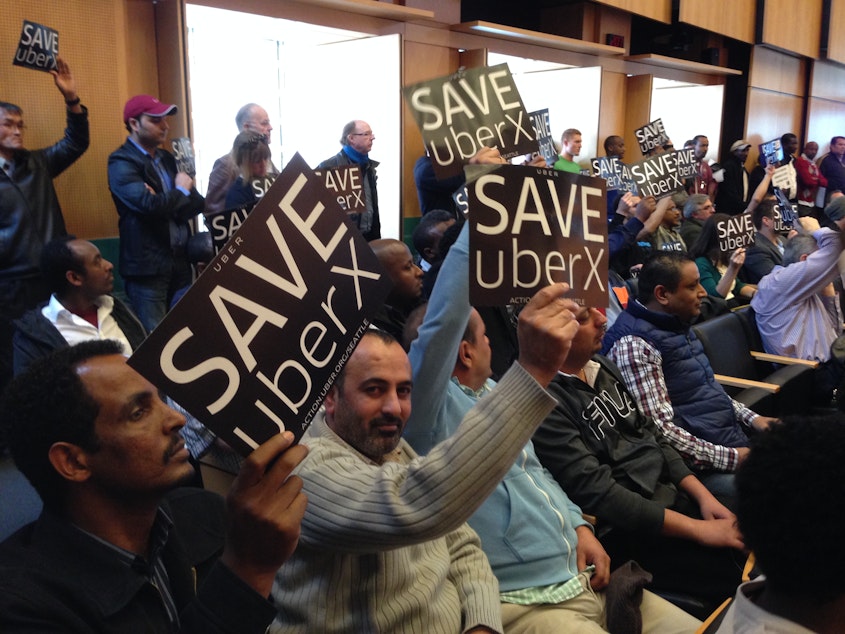Seattle City Council Legalizes Rideshares, But Puts Cap On Cars

You may see fewer cars with pink mustaches on the road in the coming months.
Seattle’s City Council yesterday gave final approval to a plan that would limit the number of cars that rideshare companies like Lyft, UberX and Sidecar can operate.
For months, the council had been struggling with what to do about the new app-based ridesharing services, which have been operating in the city outside the law, much to the chagrin of the heavily-regulated taxi industry.
“It’s not the complete fix, it is a start,” declared Councilmember Sally Clark, who oversaw the drafting of the legislation.
Before a standing room only crowd, the council unanimously voted to regulate the new services and to limit the number of cars that any rideshare company can have on the streets at any one time at 150. The cap would be in place for a two-year pilot. The council reserved the right to modify it if needed.
Rideshare companies had fought the cap, arguing that it would make their businesses untenable in the city.
“It’s extremely disappointing that the City Council has chosen to ignore tens of thousands of their voters and pass an ordinance that will be destructive to hundreds of small businesses here in town,” said Brooke Steger, Uber’s Seattle general manager.
Steger said Uber would continue to fight the cap and would appeal to Mayor Ed Murray not to sign the legislation. When asked whether the company would cease operations in Seattle as it had threatened, Steger responded, “Stay tuned.”
Some taxi and for-hire companies cheered passage of the legislation, saying that it levels the playing field between traditional players and the new upstarts.
“This is a good first start and fresh start for everybody,” said Samatar Guled of the Eastside for Hire Association.
But others argued that the cap does not go far enough to protect current taxi drivers, who, unlike the rideshare services, have long played by the city’s rules.
“The Seattle City Council threw them to the dogs,” said Chris Van Dyk, general manager of Green Taxi.
Since the ordinance does not limit the number of companies or total number of rideshares on the road, the city could be flooded with new entrants to the market.
“So potentially we could get another 2,000 - 3,000 vehicles on the road, and if that happens, no single driver is able to make a living,” Van Dyk said.
As part of the legislation, the council did approve an additional 200 taxi licenses for the first time in decades.
During council debate, Councilmember Clark chided rideshare companies for failing to cooperate during the process.
"You are doing so many things right," she said. "If only you would communicate and collaborate a little bit more. How many wars can you wage simultaneously in cities and states across the United States? It's incredible."
At the same time, she put taxi companies on notice that they would need to change if they are to survive.
"To the taxi owners, this is a wake-up call, or shout or a cannon shot," Clark said. "We've got to use this period to improve service across the board for all rider and all drivers."

